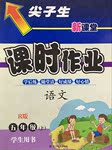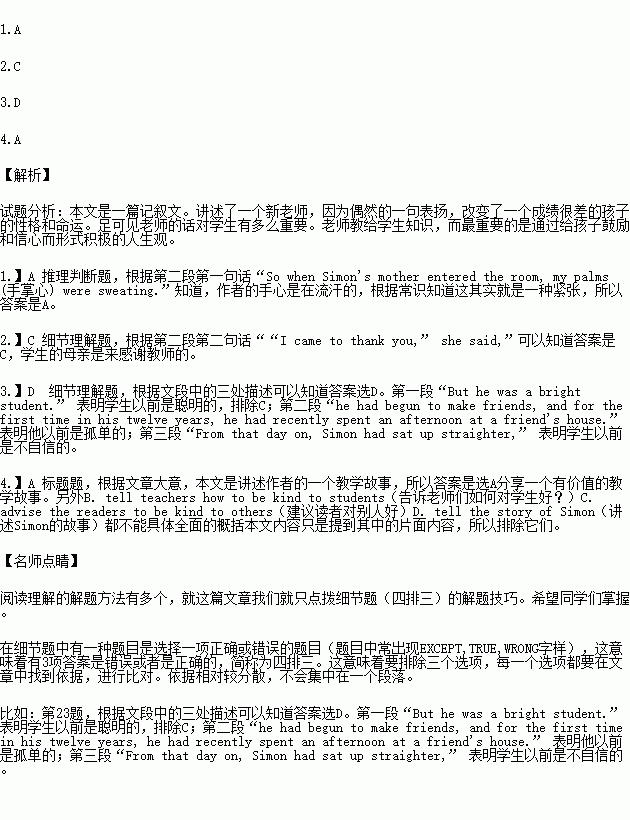题目内容
I had worried myself sick over Simon's mother coming to see me. I was a new teacher, and I gave an honest account of the students' work. In Simon's case,the grades were awfully low. He couldn't read his own handwriting. But he was a bright student. He discussed adult subjects with nearly adult comprehension. His work in no way reflected his abilities.
So when Simon's mother entered the room, my palms (手掌心) were sweating. I was completely unprepared for her kisses on both my cheeks. “I came to thank you,” she said, surprising me beyond speech. Because of me, Simon had become a different person. He talked of how he loved me, he had begun to make friends, and for the first time in his twelve years, he had recently spent an afternoon at a friend's house. She wanted to tell me how grateful she was for the self-respect I had developed in her son. She kissed me again and left.
I sat, stunned, for about half an hour,wondering what had just happened. How did I make such a life changing difference to that boy without even knowing it?What I finally came to remember was one day, several months before,when some students were giving reports in the front of the class, Jeanne spoke quietly,and to encourage her to raise her voice, I had said, “Speak up. Simon's the expert on this. He is the only one you have to convince, and he can't hear you in the back of the room.” That was it. From that day on, Simon had sat up straighter, paid more attention, smiled more,and became happy. And it was all because he happened to be the last kid in the last row. The boy who most needed praise was the one who took the last seat that day.
It taught me the most valuable lesson over the years of my teaching career, and I'm thankful that it came early and positively. A small kindness can indeed make a difference.
1.We can infer that when Simon’s mother entered the room, the writer felt _______.
A. nervous B. satisfied C. happy D. surprised
2.Why did Simon’s mother come to visit the writer?
A. Because she worried about her son’s poor work.
B. Because Simon asked her to do so.
C. Because she wanted to show her gratitude to the writer.
D. Because she wanted to know her son’s performance in the school.
3.The following words can be used to describe Simon before he met the writer EXCEPT _____.
A. unconfident B. lonely C. clever D. outgoing
4.The purpose of the passage is to ________.
A. share a valuable lesson with readers
B. tell teachers how to be kind to students
C. advise the readers to be kind to others
D. tell the story of Simon
 尖子生新课堂课时作业系列答案
尖子生新课堂课时作业系列答案
